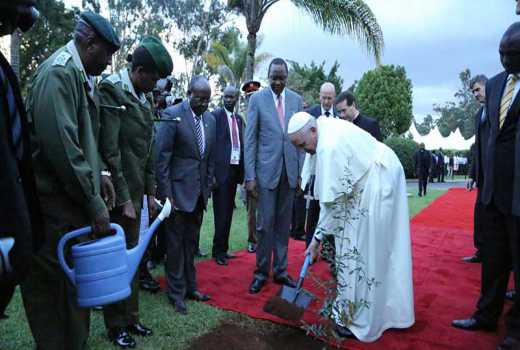×
The Standard e-Paper
Home To Bold Columnists

Last week, the Environment Ministry’s spirited #PandaMitiPendaKenya campaign rallied Kenyans to plant over a billion trees and restore Kenya’s depleted forest cover.
The campaign comes in the wake of reports that emphasise the importance of locally driven forest conservation efforts.